News
Bleiben Sie auf dem Laufenden über die neuesten Entwicklungen in Technologie, digitaler Innovation und KI. Unser News-Bereich hebt wichtige Branchentrends, regulatorische Neuerungen und Durchbrüche hervor, die für Ihr Unternehmen relevant sind.
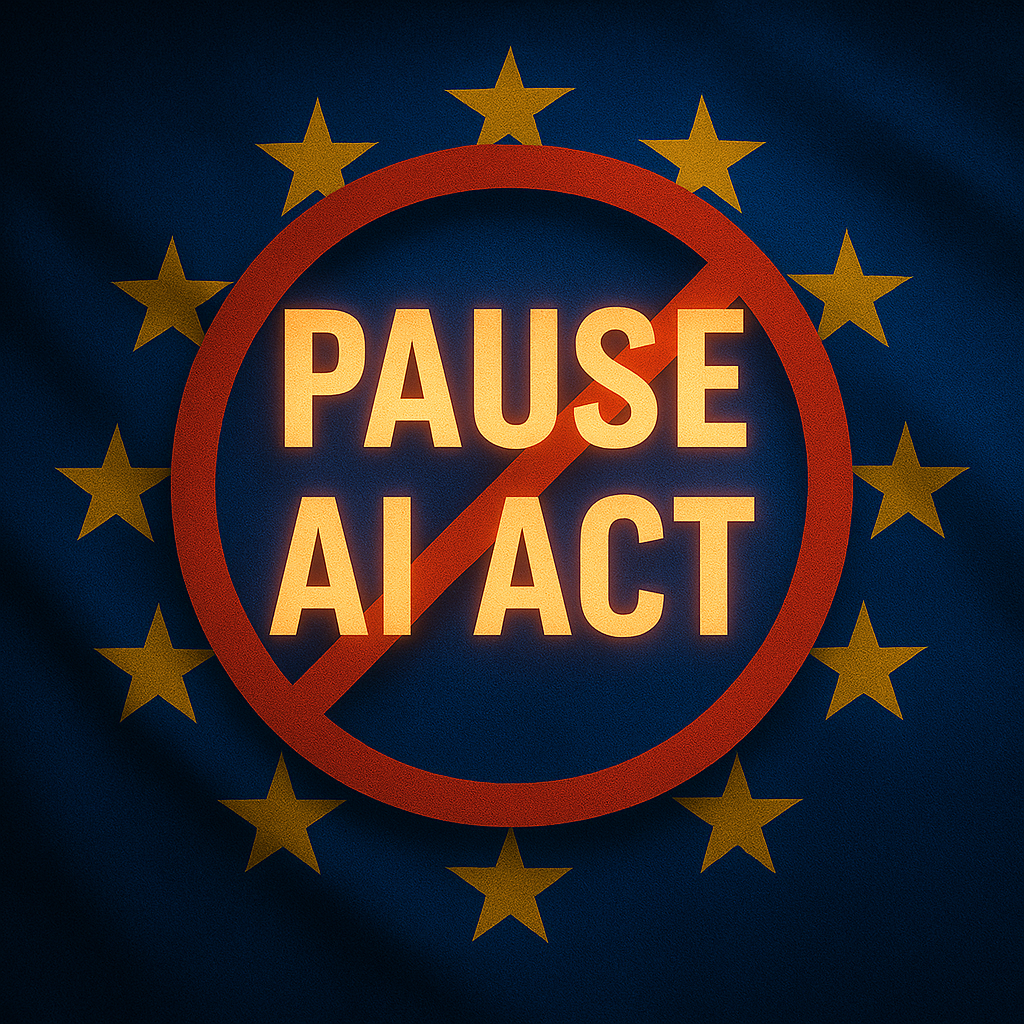
15. Oktober 2025 – Europäische CEOs fordern Stopp des AI Act wegen Wettbewerbsbedenken
Führende europäische Unternehmenschefs – unter anderem von Airbus, BNP Paribas und Philips – haben die
Europäische Kommission dazu aufgerufen, die Umsetzung des AI Act vorübergehend zu stoppen.
Sie warnen, dass die Komplexität der Regelung Innovation ausbremsen und die Wettbewerbsfähigkeit europäischer
Technologieunternehmen beeinträchtigen könnte. In einem offenen Brief hoben sie die rechtliche Unsicherheit bei
den Klassifizierungsregeln hervor und warnten, die Regulierung könnte große etablierte Akteure begünstigen.
Der Appell macht die Spannungen zwischen regulatorischem Anspruch und Marktrealität im europäischen
KI-Ökosystem deutlich.
Quellen:
Financial Times
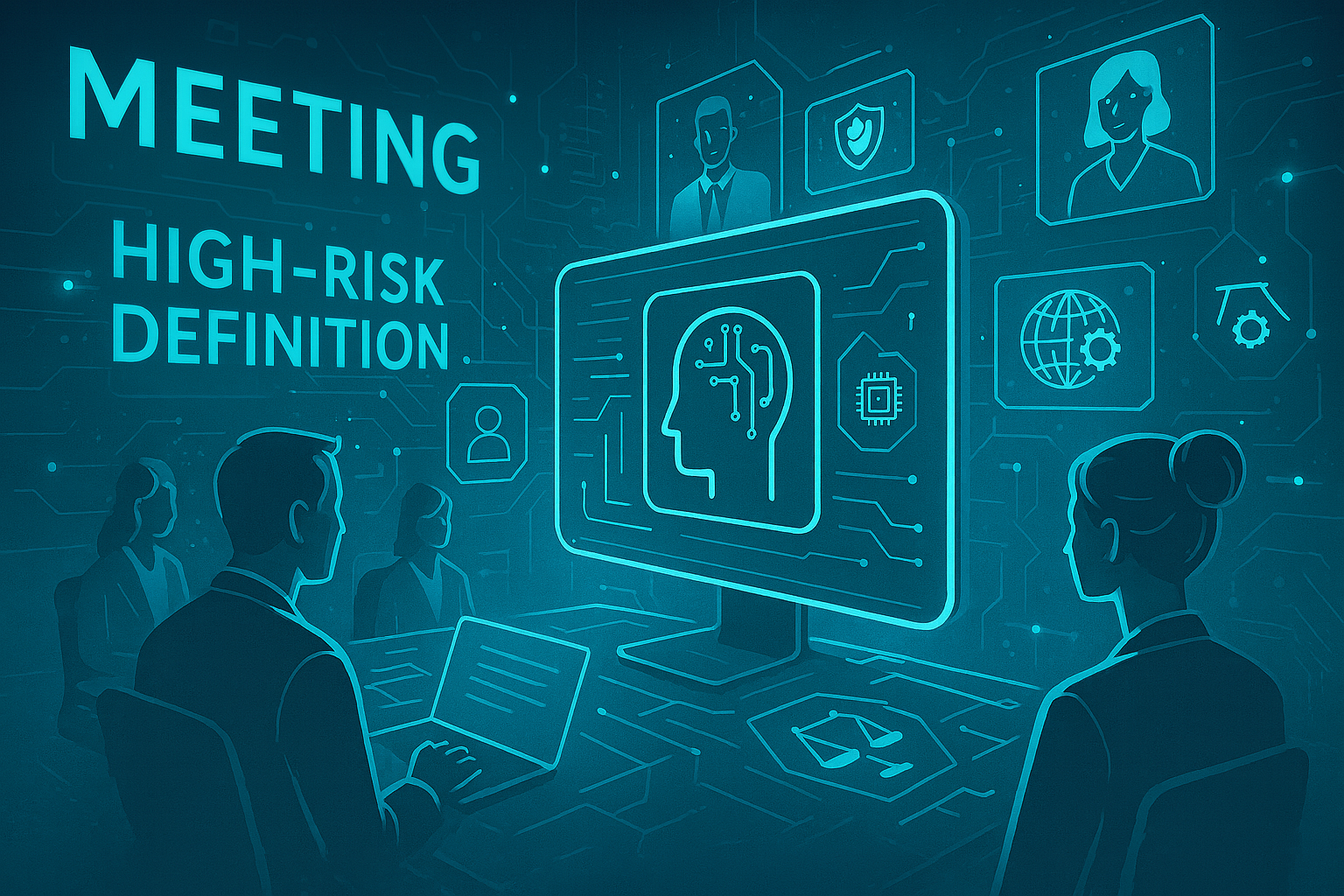
1. Oktober 2025 – Zweites Treffen des „AI Act Correspondents Network“
Über 100 Vertreterinnen und Vertreter aus ganz Europa kamen – online und in Brüssel – zum
zweiten Treffen des AI Act Correspondents Network zusammen. Dieses Forum fördert die
Zusammenarbeit zwischen Aufsichtsbehörden, den Austausch von Erfahrungen und eine abgestimmte
Durchsetzungspraxis. Auf der Tagesordnung standen unter anderem der Stand der Umsetzung, die Abstimmung bei
Definitionen „hochriskanter“ Systeme sowie Strategien zur Einbindung von Stakeholdern. Das Treffen unterstreicht
die wachsende Bedeutung kooperativer Regulierung nach Inkrafttreten des AI Act.
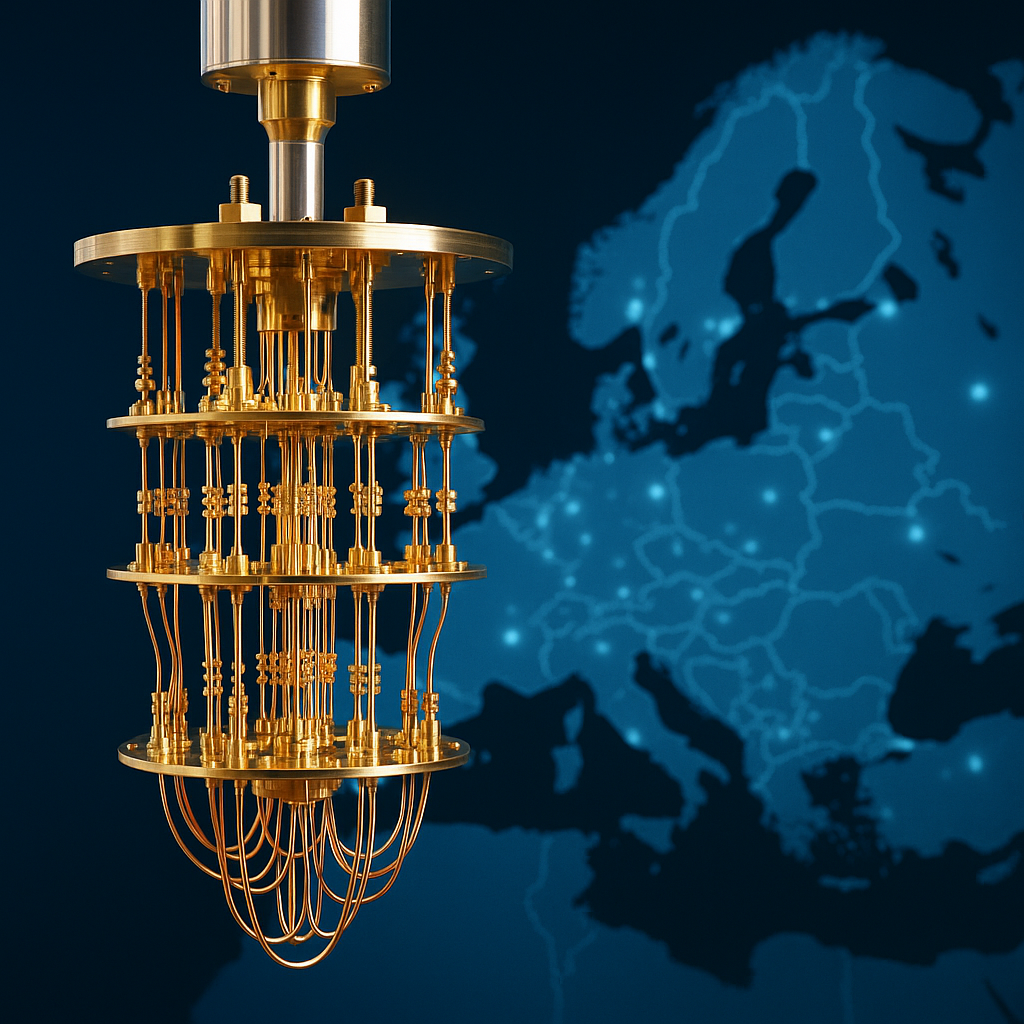
15. September 2025 – Europa nimmt Quanten-Supercomputer „VLQ“ für Forschungszwecke in
Betrieb
Europa hat offiziell das Quantensystem VLQ im tschechischen Ostrava in Betrieb genommen – ein
wichtiger Meilenstein für die europäische Forschungsinfrastruktur. Der im Rahmen des EuroHPC Joint Undertaking
betriebene VLQ integriert 24 supraleitende Qubits in einer Stern-Topologie und soll mit
klassischen Hochleistungsrechnern für hybride Workflows gekoppelt werden. Während die Kalibrierung noch läuft,
ist das System darauf ausgelegt, Quantenalgorithmen, Materialforschung, Kryptographie und weitere
Hochtechnologie-Forschung zu unterstützen. Die Inbetriebnahme stärkt Europas Anspruch, eigene souveräne
Rechenkapazitäten aufzubauen und Innovation an der Quantenfront voranzutreiben.
Quellen:
EuroHPC JU
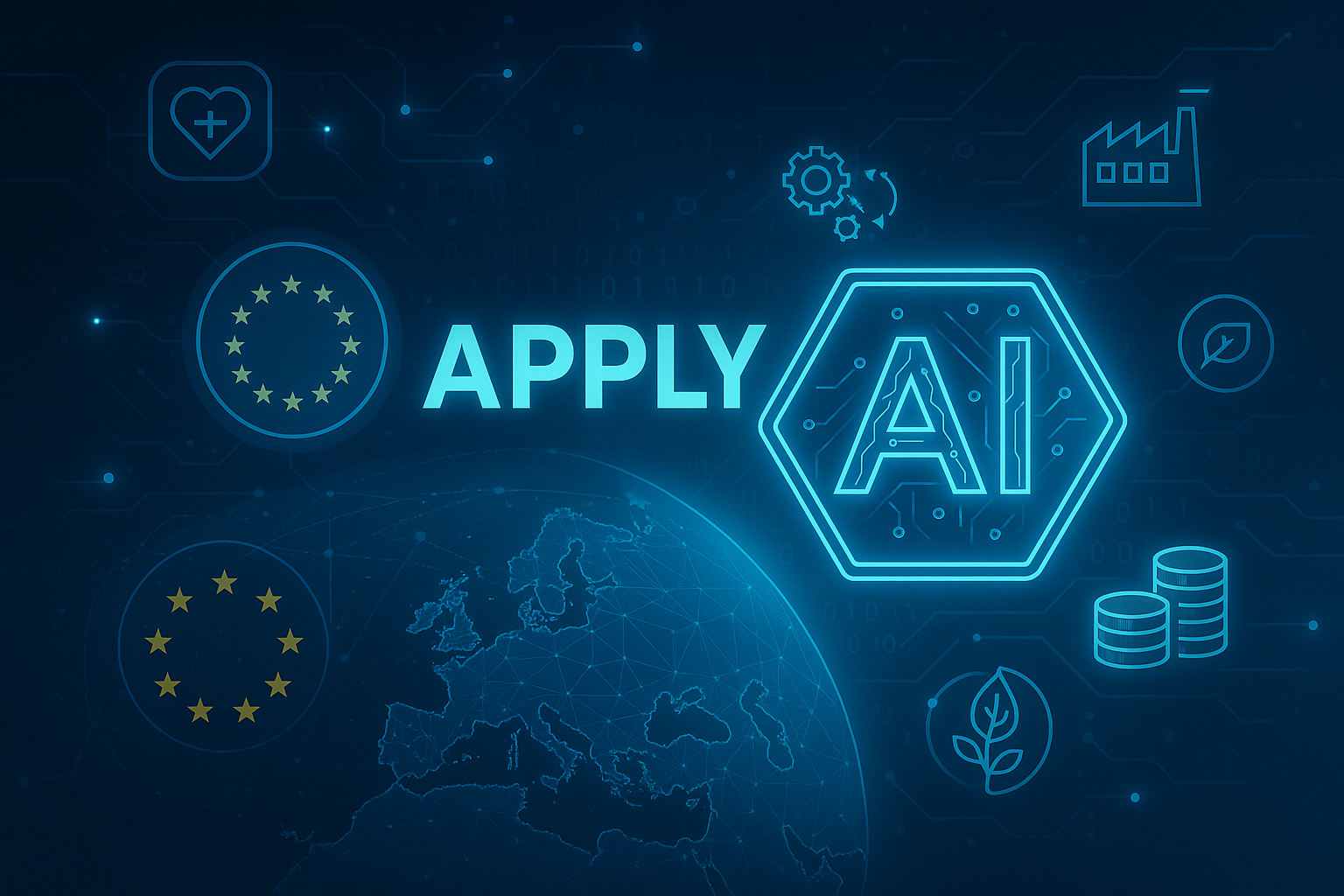
1. September 2025 – EU startet „Apply AI“-Strategie mit 1 Milliarde € Förderung
Die Europäische Kommission hat ihre „Apply AI“-Strategie vorgestellt, die mit
1 Milliarde € ausgestattet ist, um den Einsatz vertrauenswürdiger KI in europäischen
Unternehmen und Forschung zu beschleunigen. Die Strategie zielt darauf ab, die technologische Souveränität
Europas im bestehenden regulatorischen Rahmen zu stärken und KI in Sektoren wie Gesundheitswesen,
Fertigungsindustrie und Klimatechnologien zu skalieren. Sie baut auf früheren Infrastruktur- und
Regulierungsinitiativen auf und soll die EU als Standort für verantwortungsvolle Innovation positionieren.
Quellen:
Europäische Kommission,
Simmons & Simmons
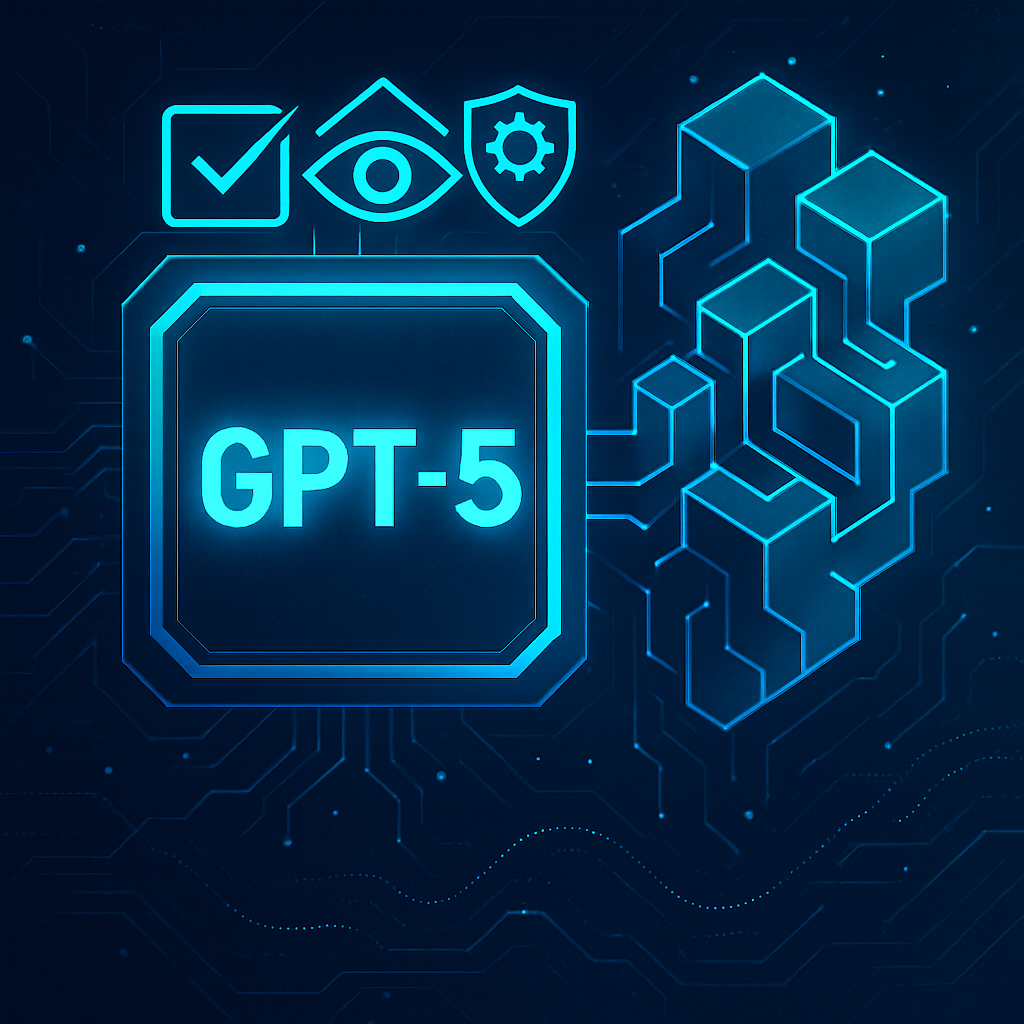
15. August 2025 – OpenAI bereitet Start von GPT-5 mit hybrider Architektur vor
Laut Berichten bereitet OpenAI die Einführung von GPT-5 für August 2025 vor. Das System soll
mehrere zugrundeliegende Modelle integrieren und je nach Aufgabe dynamisch zwischen spezialisierten Modulen
wechseln, anstatt auf ein einziges monolithisches Modell zu setzen. Dieser hybride Ansatz könnte Effizienz,
Anpassungsfähigkeit und Interpretierbarkeit im Vergleich zu früheren Generationen verbessern. Die Entwicklung
ist eine Reaktion auf steigende Anforderungen an modulare, skalierbare Architekturen für fortgeschrittene
KI-Systeme.
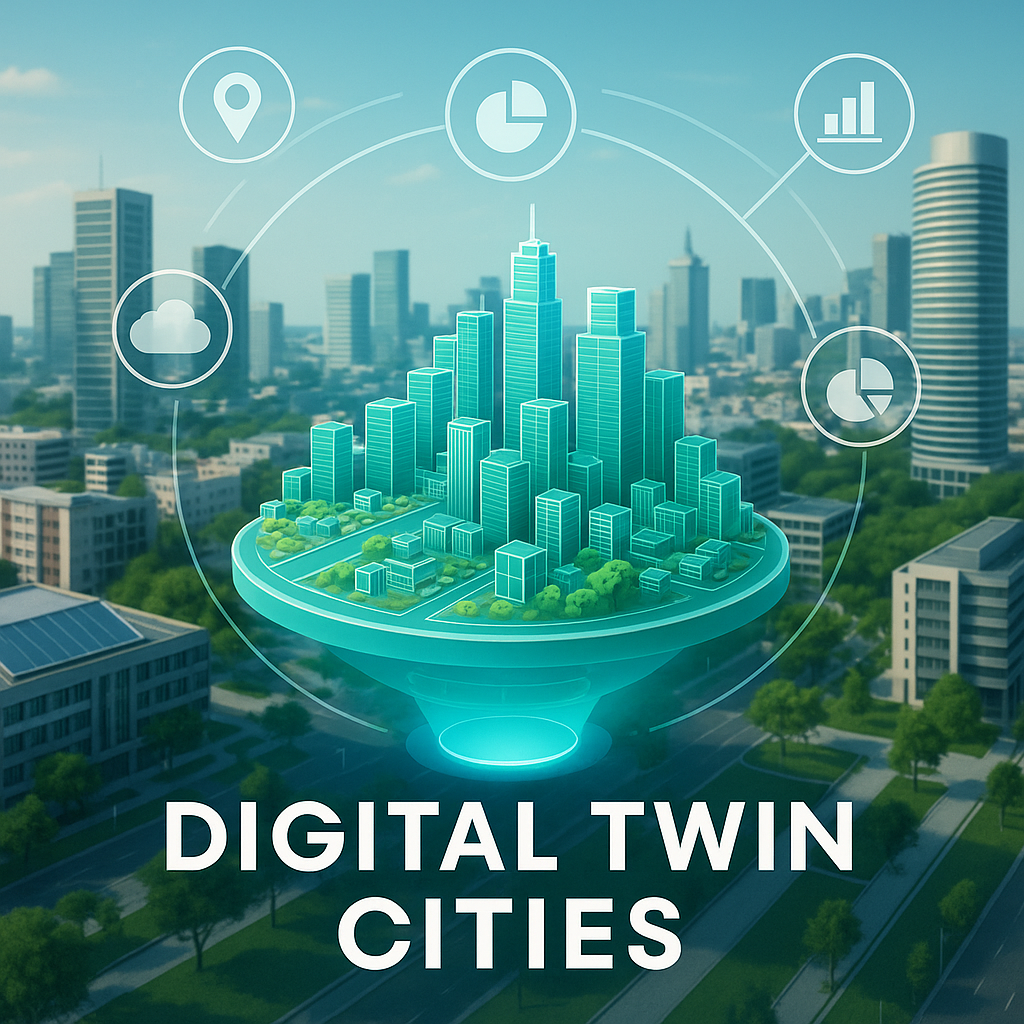
1. August 2025 – Europa treibt smarte Infrastruktur mit „Digital Twin Cities“-Initiative
voran
Der European Innovation Council hat die „Digital Twin Cities“-Initiative gestartet – ein
Programm, das digitale Echtzeit-Zwillinge von Städten entwickeln soll, um Stadtplanung, Nachhaltigkeit und
Infrastrukturmanagement zu optimieren. Das Projekt bringt Kommunen, Technologieunternehmen und
Forschungsinstitute
aus zwölf EU-Ländern zusammen. Diese digitalen Zwillinge simulieren Energieflüsse, Mobilitätssysteme und
Klimaszenarien, um bessere Entscheidungen zu ermöglichen und Emissionen zu reduzieren. Die Initiative ist Teil
der europäischen Green and Digital Transformation Agenda und soll europäische Städte bis 2030
anpassungsfähiger, effizienter und nachhaltiger machen.
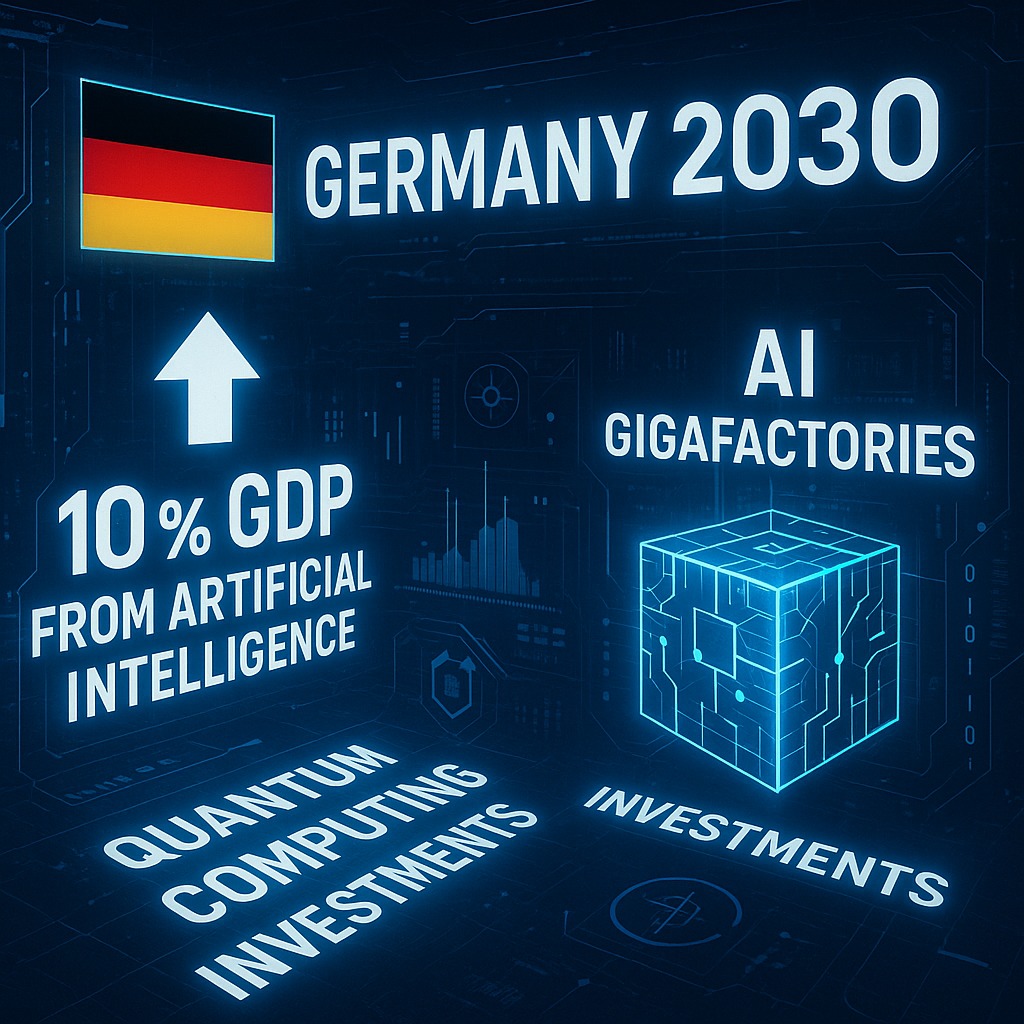
15. Juli 2025 – Deutschland startet ambitionierte „KI-Offensive“ für Wachstum bis 2030
Die Bundesregierung hat eine nationale KI-Strategie vorgestellt, die Künstliche Intelligenz bis 2030 zu einem
zentralen Wachstumstreiber machen soll. Die sogenannte „KI-Offensive“ sieht vor, dass
10 % des deutschen BIP bis 2030 KI-basiert sein sollen, um den Rückstand gegenüber den
USA und China zu verringern. Der Entwurf sieht Investitionen in großskalige KI-Rechenzentren
(„AI Gigafactories“) vor, die gemeinsam mit der Industrie und den Bundesländern aufgebaut
werden. Brüssel unterstützt den Ausbau der Infrastruktur mit 20 Milliarden € für
KI- und Dateneinrichtungen. Die Strategie setzt außerdem Ziele im Quantencomputing (zwei fehlertolerante
Quantencomputer bis 2030) und betont eine enge Kooperation von Staat und Wirtschaft. Das Kabinett soll die
Strategie noch im selben Monat beschließen – ein klares Signal für Deutschlands Anspruch auf KI-getriebene
Innovation.
Quellen: Handelsblatt, Europäische Kommission
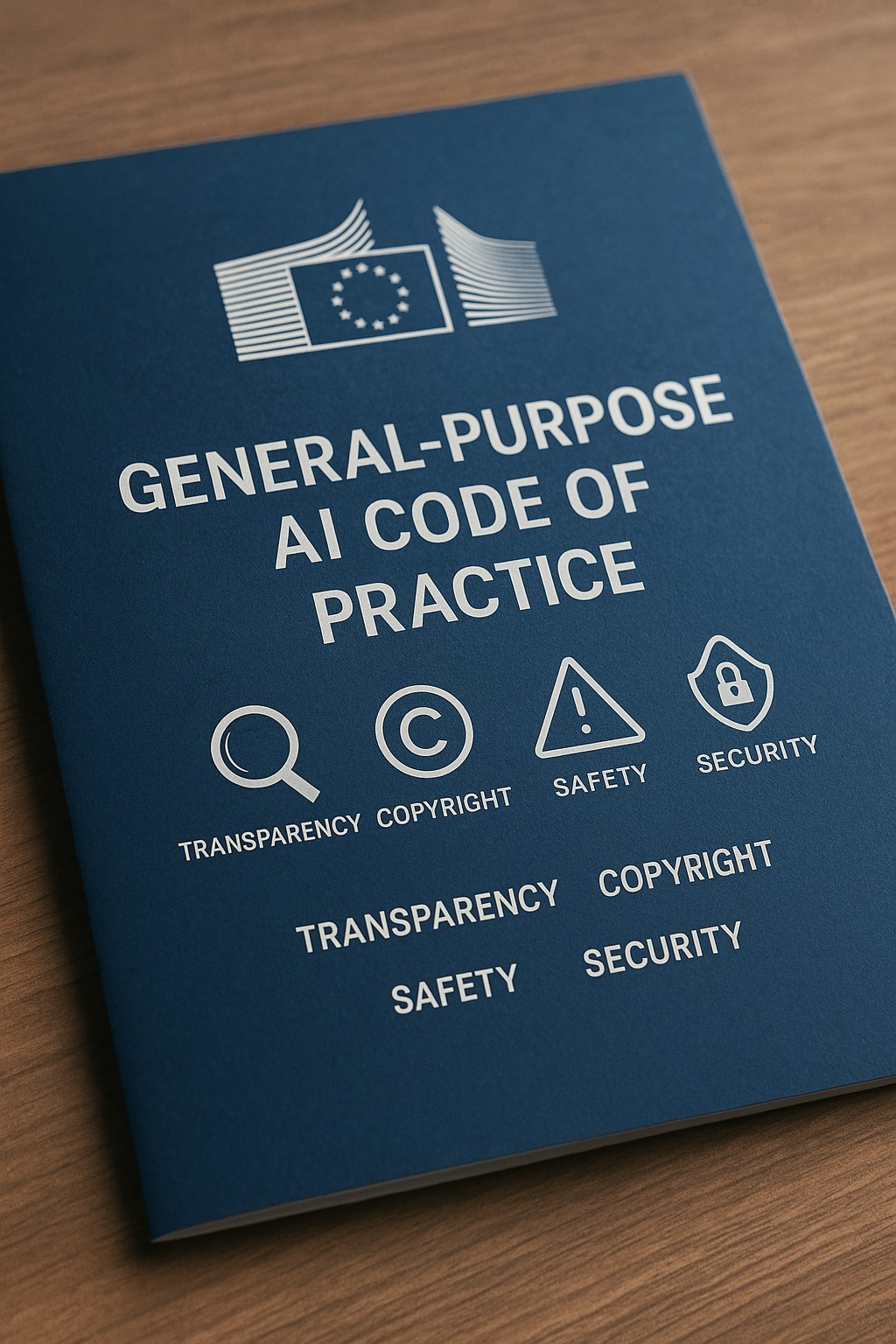
10. Juli 2025 – EU-Verhaltenskodex unterstützt Konformität bei General-Purpose-KI
Die Europäische Kommission hat einen „General-Purpose AI Code of Practice“ veröffentlicht, um
Anbietern großer KI-Modelle Orientierung bei der Umsetzung der neuen EU-Regeln zu geben. Der freiwillige Kodex,
der von 13 Experten mit Input aus über 1.000 Beiträgen entwickelt wurde, enthält Leitlinien zu
Transparenz, Urheberrecht, Sicherheit und Schutz für Foundation-Modelle. Er unterstützt die
Einhaltung der Vorgaben des EU AI Act, dessen zentrale Regelungen für Hersteller allgemein
nutzbarer KI-Systeme ab August 2025 gelten. Unterzeichner, die den Kodex befolgen, profitieren von größerer
Rechtssicherheit und weniger Bürokratie. Die Initiative ist Teil des europäischen Ansatzes für
verantwortungsvolle KI-Innovation, damit leistungsstarke KI-Systeme sicher,
transparent und vertrauenswürdig sind.
Quellen: Europäische Kommission, TechCrunch, Euractiv
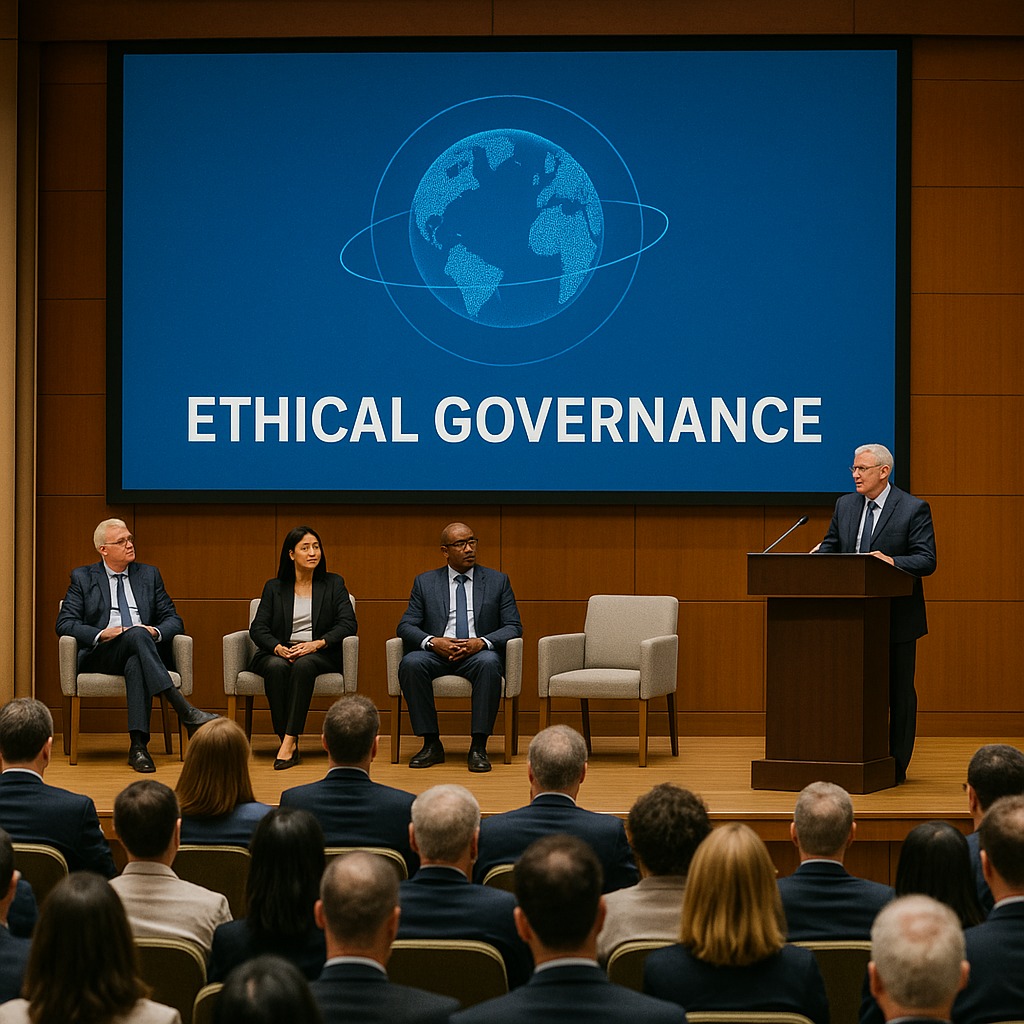
30. Juni 2025 – Globales Forum fordert stärkere Kooperation bei ethischer KI
Auf dem 3. Global Forum on AI Ethics der UNESCO in Bangkok haben internationale
Entscheidungsträger dazu aufgerufen, ethische KI-Prinzipien in konkrete Maßnahmen zu überführen. Das Forum
betonte die Fortschritte seit der wegweisenden UNESCO-Empfehlung zu KI-Ethik von 2021: Zahlreiche Staaten haben
ethische Rahmenwerke integriert und beginnen mit KI-Reifeanalysen. Neu vorgestellt wurden globale
Kooperationsplattformen, darunter ein Netzwerk von KI-Aufsichtsbehörden sowie ein Netzwerk aus
Zivilgesellschaft und Wissenschaft, um die grenzüberschreitende Regulierung zu stärken. Zentrales Anliegen war,
dass internationale und regionale Zusammenarbeit dringend notwendig ist, damit KI
menschenzentriert und verantwortungsvoll gestaltet wird. Die Teilnehmenden betonten, dass es
nicht bei Prinzipien bleiben dürfe: Aufsichtsstrukturen und Best Practices müssten umgesetzt werden, damit
ethische Leitlinien reale Wirkung entfalten.
Quellen: UNESCO, UN News
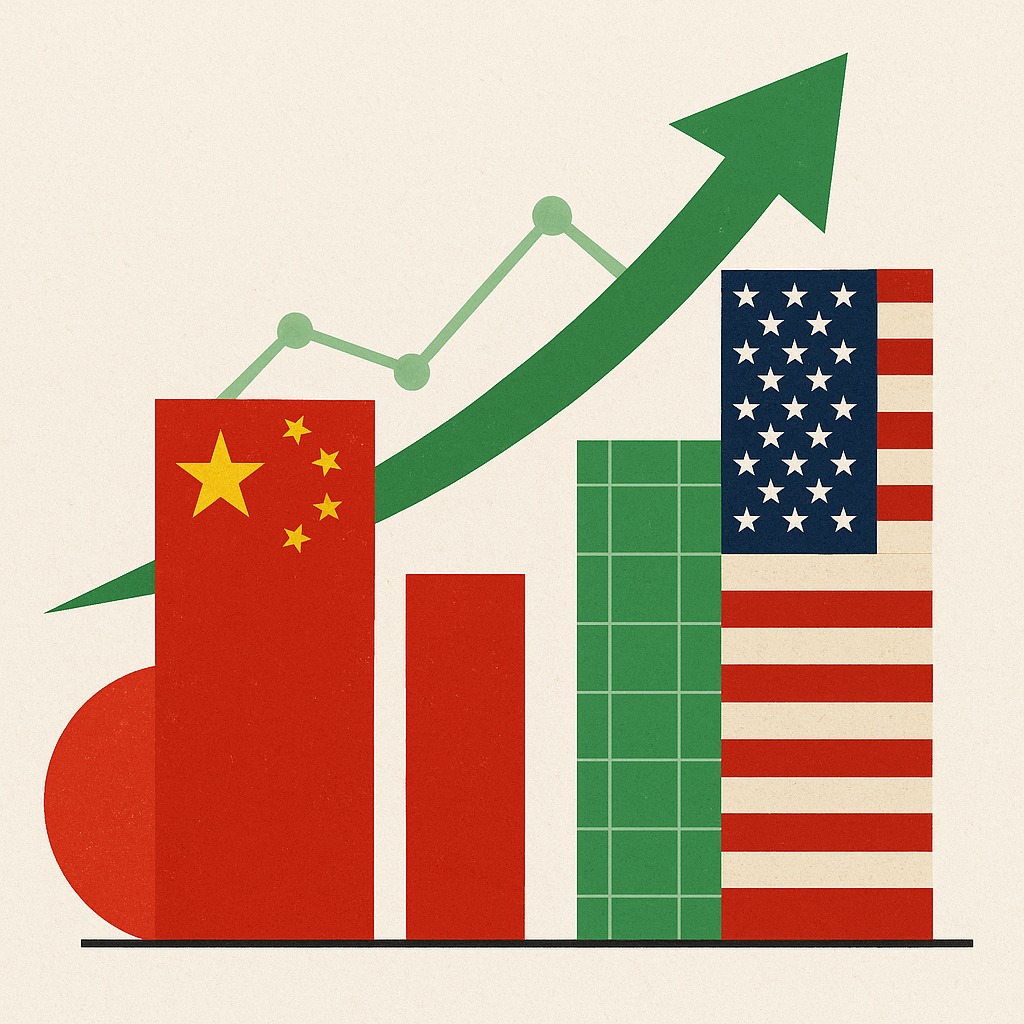
15. Juni 2025 – Branchenreport: China holt im globalen KI-Wettlauf auf
Ein neuer jährlicher „State of AI“-Report zeigt, dass der globale KI-Markt so umkämpft ist wie
nie zuvor. Laut der Analyse des Stanford HAI hat die Zahl und Qualität
leistungsstarker chinesischer KI-Modelle deutlich zugenommen – und stellt die
Führungsrolle der USA zunehmend in Frage. Der Vorsprung zwischen den besten amerikanischen und
chinesischen Modellen schrumpft, was sich in Benchmark-Ergebnissen und Forschungsoutput widerspiegelt.
Gleichzeitig hat es 2024 große Fortschritte bei effizienten KI-Systemen gegeben: Kleinere,
optimierte Modelle erreichen heute die Leistungsfähigkeit früherer riesiger Modelle. Diese Entwicklungen deuten
auf einen enger werdenden KI-Wettlauf hin, angetrieben durch Chinas hohe F&E-Investitionen und den Ausbau von
Fachkräften. Beobachter erwarten, dass dies Innovation weiter beschleunigt und zu vielfältigeren KI-Lösungen
führt.
Quellen: Stanford HAI, MIT Technology Review
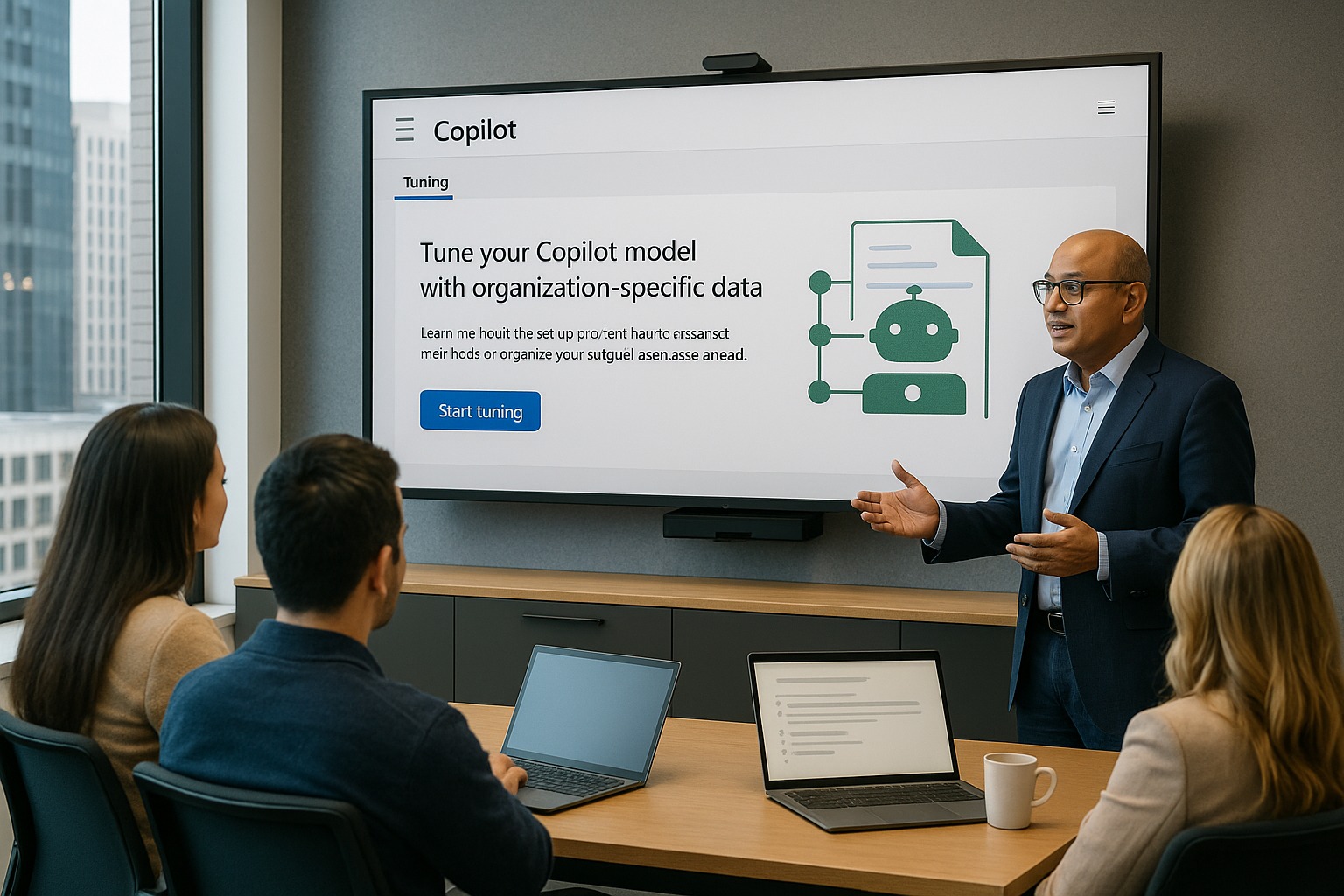
23. Mai 2025 – Microsoft stärkt Unternehmen mit maßgeschneiderten KI-Agenten
Auf der Build 2025 hat Microsoft neue Tools vorgestellt, mit denen Organisationen KI stärker auf ihre
eigenen Bedürfnisse zuschneiden können. Dazu gehört Microsoft 365 Copilot „Tuning“,
ein Low-Code-Dienst, mit dem Unternehmen Copilot anhand ihrer eigenen Daten, Workflows und Styleguides
anpassen können. So lassen sich domänenspezifische KI-Assistenten erstellen – etwa für Kanzleien, die
Dokumente in ihrem Standardformat und -ton erzeugen lassen wollen. Außerdem führte Microsoft
Multi-Agent-Orchestrierung in Copilot Studio ein, sodass mehrere spezialisierte Agenten
gemeinsam komplexe Aufgaben bearbeiten können. Diese Funktionen werden innerhalb der gesicherten Microsoft-Cloud
bereitgestellt und ermöglichen es Unternehmen, KI präziser und zugleich sicherer einzusetzen.
Quellen: Microsoft Blog, The Verge, Ars Technica
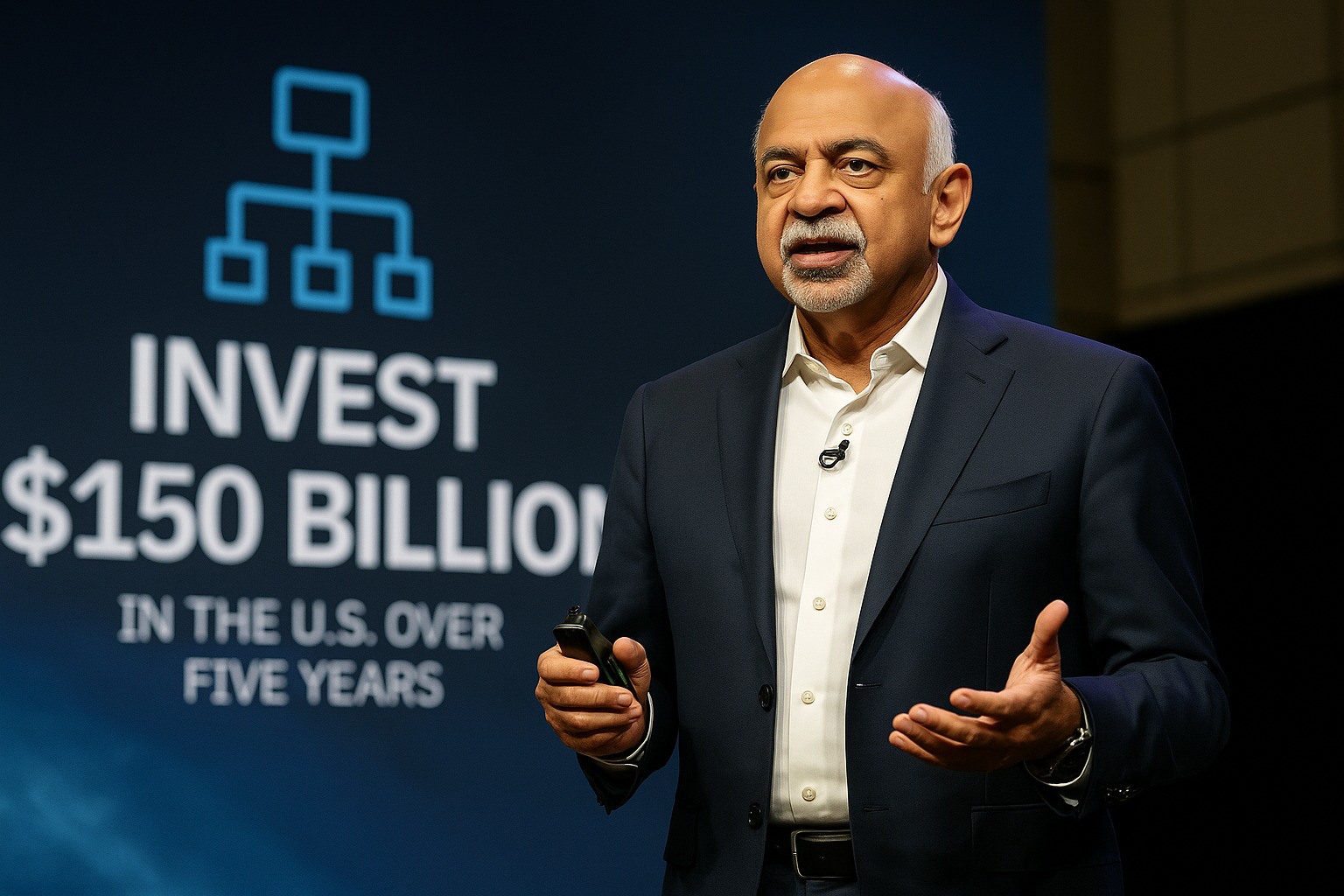
6. Mai 2025 – IBM integriert KI-Agenten und investiert 150 Mrd. $ in Tech-Ausbau
IBM verstärkt sein Engagement im Bereich Enterprise-KI mit neuen Integrationswerkzeugen und einer groß
angelegten
Investitionszusage. CEO Arvind Krishna stellte eine Strategie vor, mit der Kunden
Flotten von KI-„Agenten“ – Software-Bots von IBM und Drittanbietern – über ihre Anwendungen
hinweg orchestrieren können. Auf der IBM-Think-Konferenz wurde gezeigt, wie Unternehmen KI-Lösungen von
Salesforce, Workday, Adobe und anderen Partnern in IBMs Plattform integrieren und zugleich eigene Agenten auf
Basis der Granite-Modelle entwickeln können. Zudem kündigte IBM an, in den USA in den kommenden fünf Jahren
150 Milliarden $ in Fertigung und F&E zu investieren – insbesondere in Mainframes,
Künstliche Intelligenz und Quantencomputing.
Quellen: IBM Newsroom, CNBC, TechCrunch
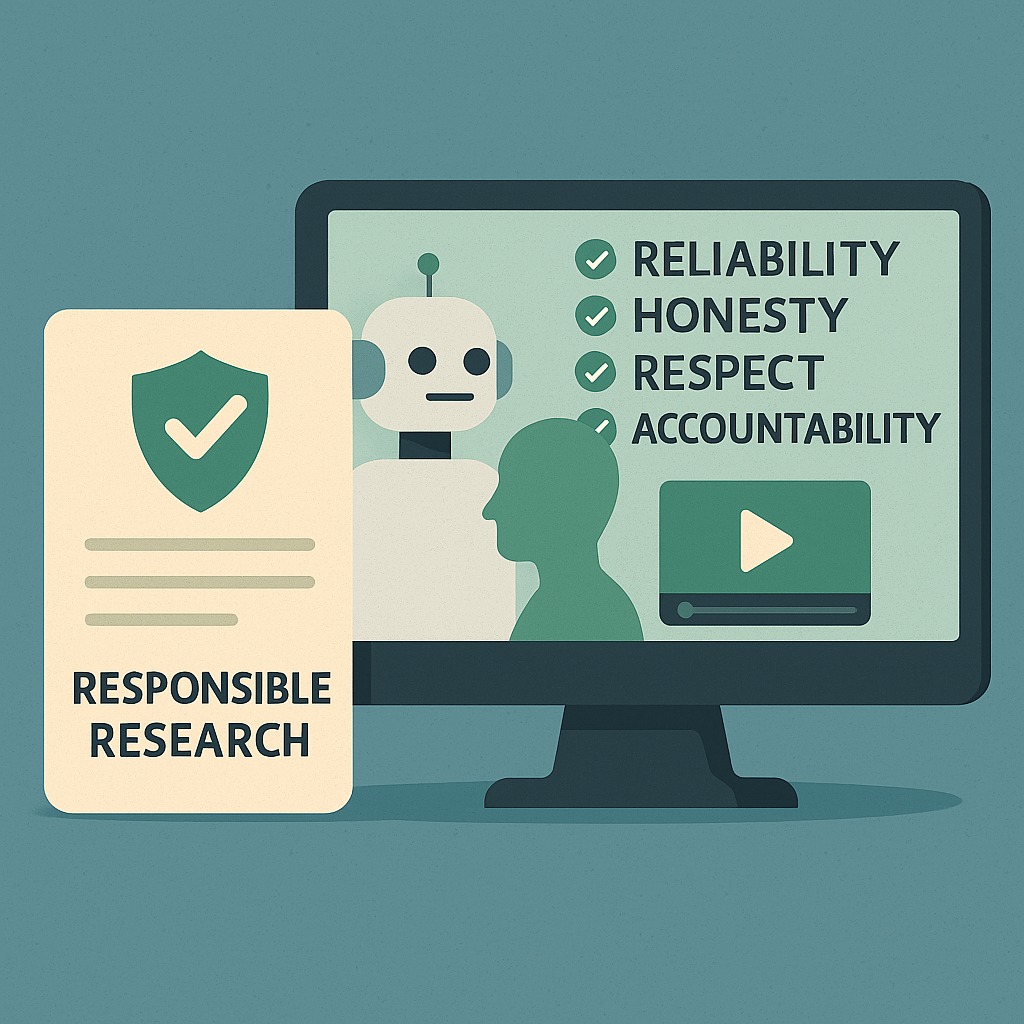
10. April 2025 – EU veröffentlicht Leitlinien für verantwortungsvolle
Generative-KI-Forschung
Die Europäische Kommission hat neue Leitlinien für den verantwortungsvollen Einsatz generativer KI in
der Forschung veröffentlicht. Ziel ist es, Ethik und Transparenz in der wissenschaftlichen
Innovation zu stärken. Empfohlen werden vier Kernprinzipien für Forschende:
Zuverlässigkeit, Ehrlichkeit, Respekt und Verantwortlichkeit. Demnach sollen
KI-Modelle robust und möglichst vorurteilsarm sein, Methoden und Datenverarbeitung transparent und fair
erfolgen, und Datenschutz, geistige Eigentumsrechte und Menschenwürde gewahrt bleiben. KI-generierte Inhalte
sollen klar gekennzeichnet und menschliche Aufsicht in der Studiengestaltung sichergestellt werden. Die
Leitlinien sind nicht rechtsverbindlich, sollen aber verantwortliche KI-Innovation in
Wissenschaft und angewandter Forschung fördern.
Quellen: Europäische Kommission, Nature, Science Business

9. April 2025 – Google stellt „Ironwood“-KI-Chip mit 10-facher Leistung vor
Google hat Ironwood vorgestellt, die siebte Generation seines eigenen
Tensor Processing Unit (TPU)-Chips, der speziell für KI-Anwendungen entwickelt wurde. Auf der
Google Cloud Next ’25 präsentierte das Unternehmen Ironwood als Chip für das „Zeitalter der Inferenz“, der
KI-Anwendungen in großem Maßstab energieeffizient ausführen soll. Ein vollständiges Ironwood-Pod verbindet
9.216 Chips und erreicht 42,5 Exaflops Rechenleistung – mehr als das 24-Fache der derzeit
größten Supercomputer. Google gibt an, dass Ironwood gegenüber der Vorgängergeneration eine
10-fache Leistungssteigerung durch höhere Energieeffizienz und Speicherbandbreite bietet.
Quellen: Google Cloud Blog, Wired, AnandTech
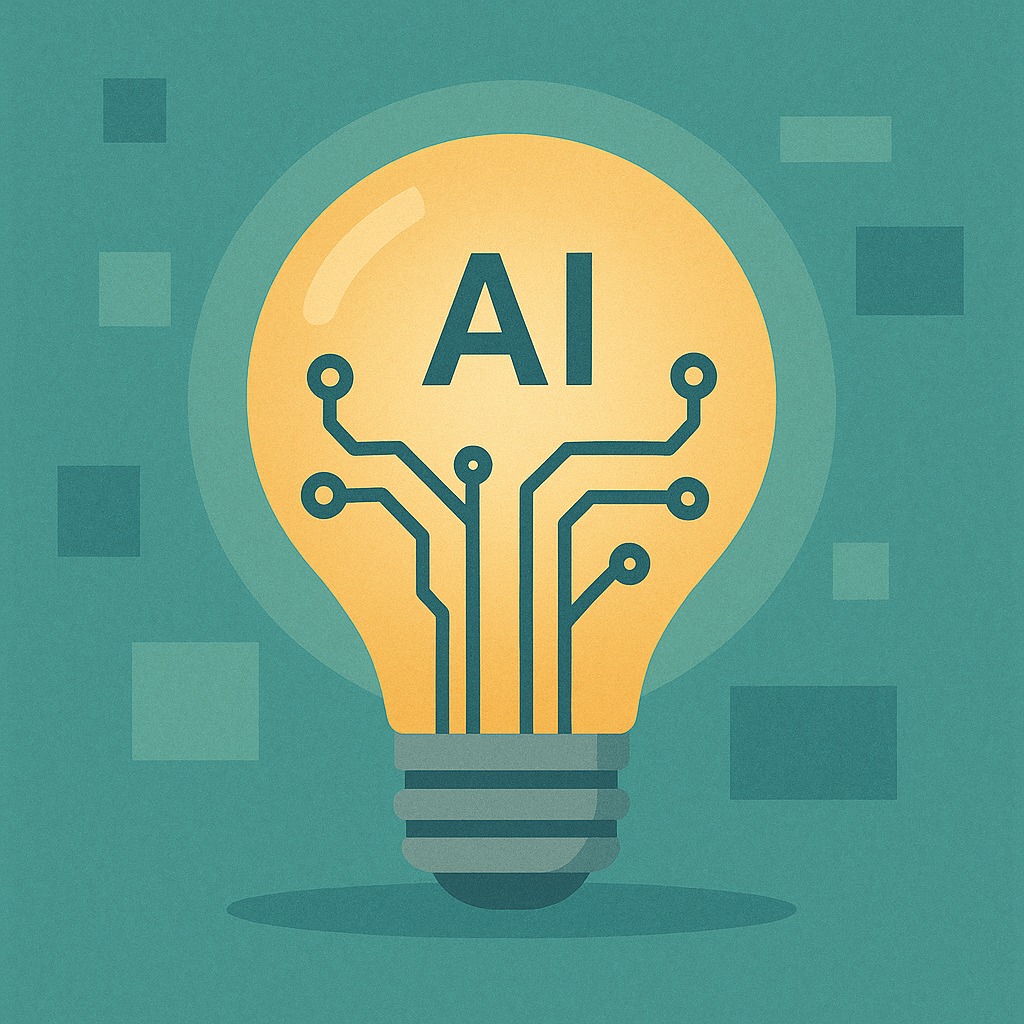
31. März 2025 – Google öffnet fortgeschrittenes Gemini-AI-Modell für alle Nutzer
Google hat sein neuestes Gemini 2.5 Pro-Modell – bekannt für verbesserte
„Reasoning“-Fähigkeiten
– für alle Nutzer frei zugänglich gemacht. Zuvor stand das Modell nur zahlenden Abonnenten in einer
Vorabversion zur Verfügung. Gemini 2.5 Pro nutzt explizite, schrittweise logische
Schlussfolgerungen („Chain-of-Thought“), die die Leistung bei komplexen Aufgaben deutlich
steigern. Google berichtet, dass das Modell auf mehreren Sprachmodell-Benchmarks Spitzenwerte erzielt. Obwohl
die Nutzung aktuell noch kontingentiert ist, markiert die breite Öffnung einen Schritt hin zu inklusiverer
KI-Entwicklung. Das Modell soll zudem in die mobile Gemini-App und in Entwickler-Tools
integriert werden.
Quellen: Google DeepMind, TechCrunch, The Verge
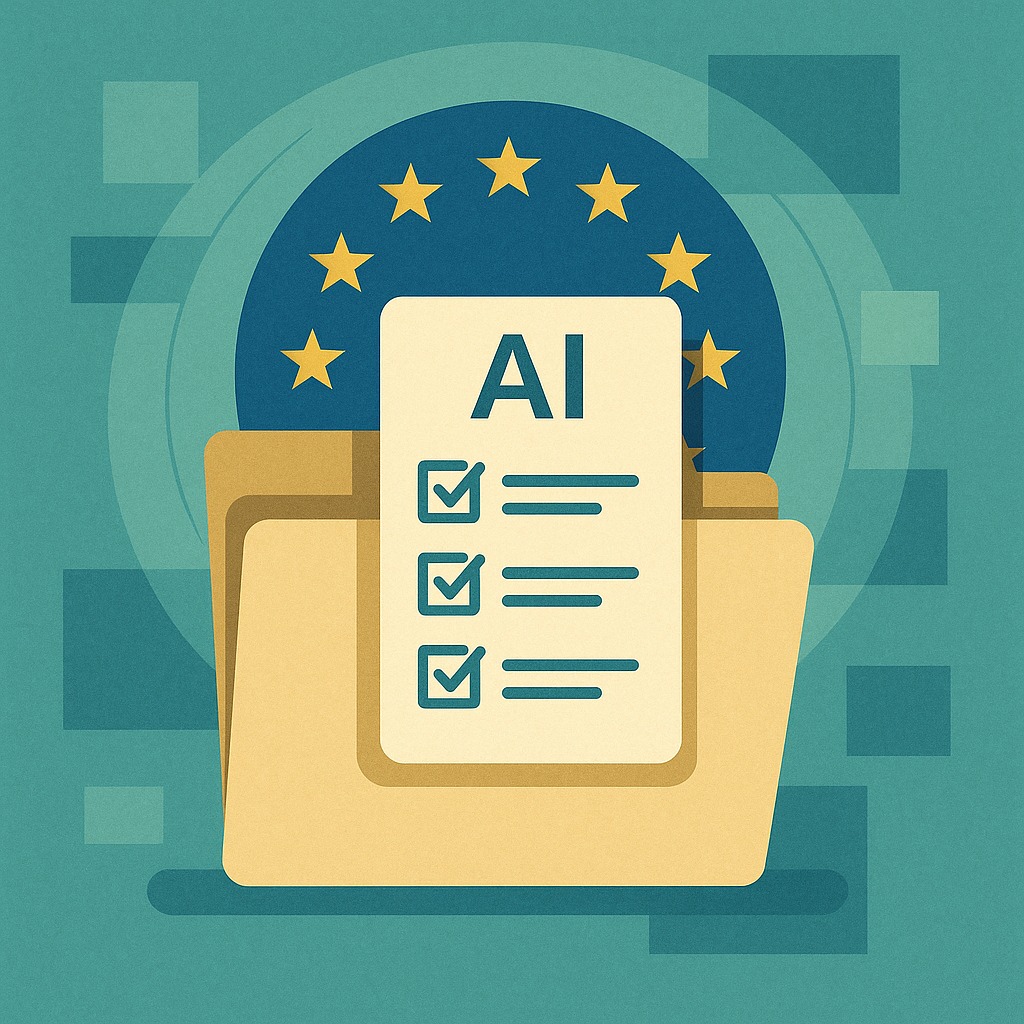
5. März 2025 – EU aktualisiert Musterklauseln für vertrauenswürdige KI-Beschaffung
Die Europäische Kommission hat ein aktualisiertes Set von Mustervertragsklauseln für die Beschaffung
von KI-Systemen (MCC-AI) veröffentlicht. Diese sollen Behörden praktische Vorgaben an die Hand
geben, um verantwortungsvolle KI-Praktiken bei Anbietern einzufordern. Die Klauseln sind eng
an den Entwurf des EU AI Act angelehnt und spiegeln die Pflichten für „Hochrisiko“-Systeme
wider (z. B. im Personalwesen oder Gesundheitsbereich). Abgedeckt werden unter anderem
Risikobewertung, Datenmanagement, Transparenz, menschliche Aufsicht und Cybersicherheit. Das
MCC-AI-Paket enthält eine Vollversion für Hochrisiko-KI, eine abgespeckte Variante für geringere Risiken sowie
umfangreiche Erläuterungen. Auch Unternehmen können die Klauseln freiwillig übernehmen, um Vertrauen und
Compliance zu stärken.
Quellen: Europäische Kommission, EUR-Lex, EU Digital Strategy Portal
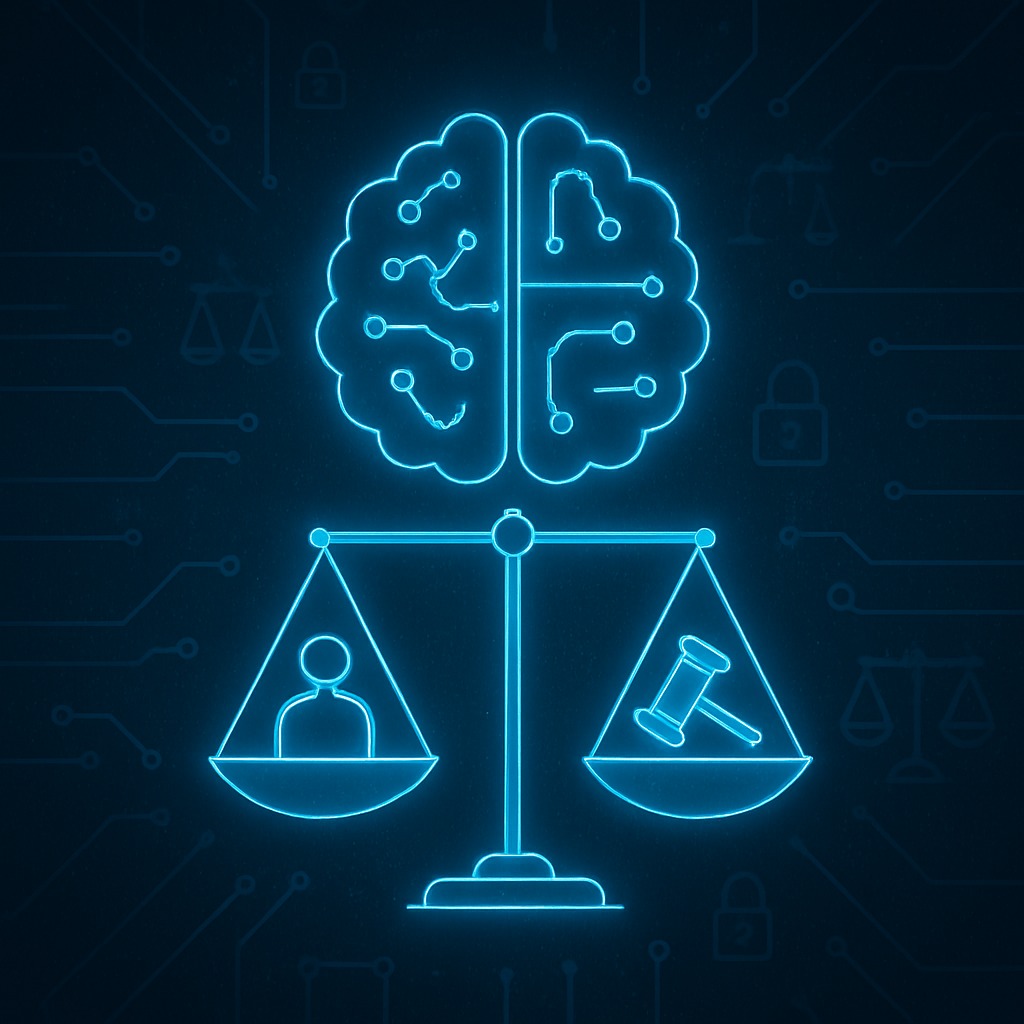
15. Februar 2025 – Google überarbeitet seine KI-Ethikrichtlinien
Google hat seine KI-Ethikprinzipien überarbeitet und dabei einige frühere, explizite
Selbstverpflichtungen zu bestimmten Hochrisiko-Anwendungen gestrichen. Die neue Fassung betont allgemeinere
Begriffe wie „verantwortungsvolle KI“ und „Zusammenarbeit“, während frühere kategorische Ausschlüsse nicht mehr
explizit genannt werden. Nach Angaben von Google sei dieser Schritt notwendig, um wettbewerbsfähig zu bleiben
und demokratische Werte im sich wandelnden KI-Ökosystem zu unterstützen. Kritiker bemängeln hingegen, dass die
Änderungen die frühere, klare Haltung des Unternehmens zu Schadensvermeidung und Transparenz aufweichen. Die
Aktualisierung entfacht die Debatte darüber neu, wie verbindlich Ethikrahmen in der Industrie sein sollten.
Quellen:
MIT Technology Review,
The Verge

1. Februar 2025 – EU AI Act verbietet Systeme mit „inakzeptablem Risiko“
Am 2. Februar 2025 treten zentrale Verbote des EU AI Act in Kraft, die KI-Anwendungen mit
„inakzeptablem Risiko“ untersagen. Betroffen sind Systeme, die das Verhalten von Nutzerinnen und Nutzern auf
schädliche Weise manipulieren oder soziale Bewertung („Social Scoring“) ermöglichen. Auch biometrische
Massenüberwachung im öffentlichen Raum wird untersagt. Ziel der Regulierung ist es, Grundrechte wie
Privatsphäre und Gleichbehandlung zu schützen und zugleich einen globalen Referenzrahmen für KI-Governance zu
setzen. Verstöße können mit Bußgeldern von bis zu 7 % des weltweiten Jahresumsatzes geahndet werden.
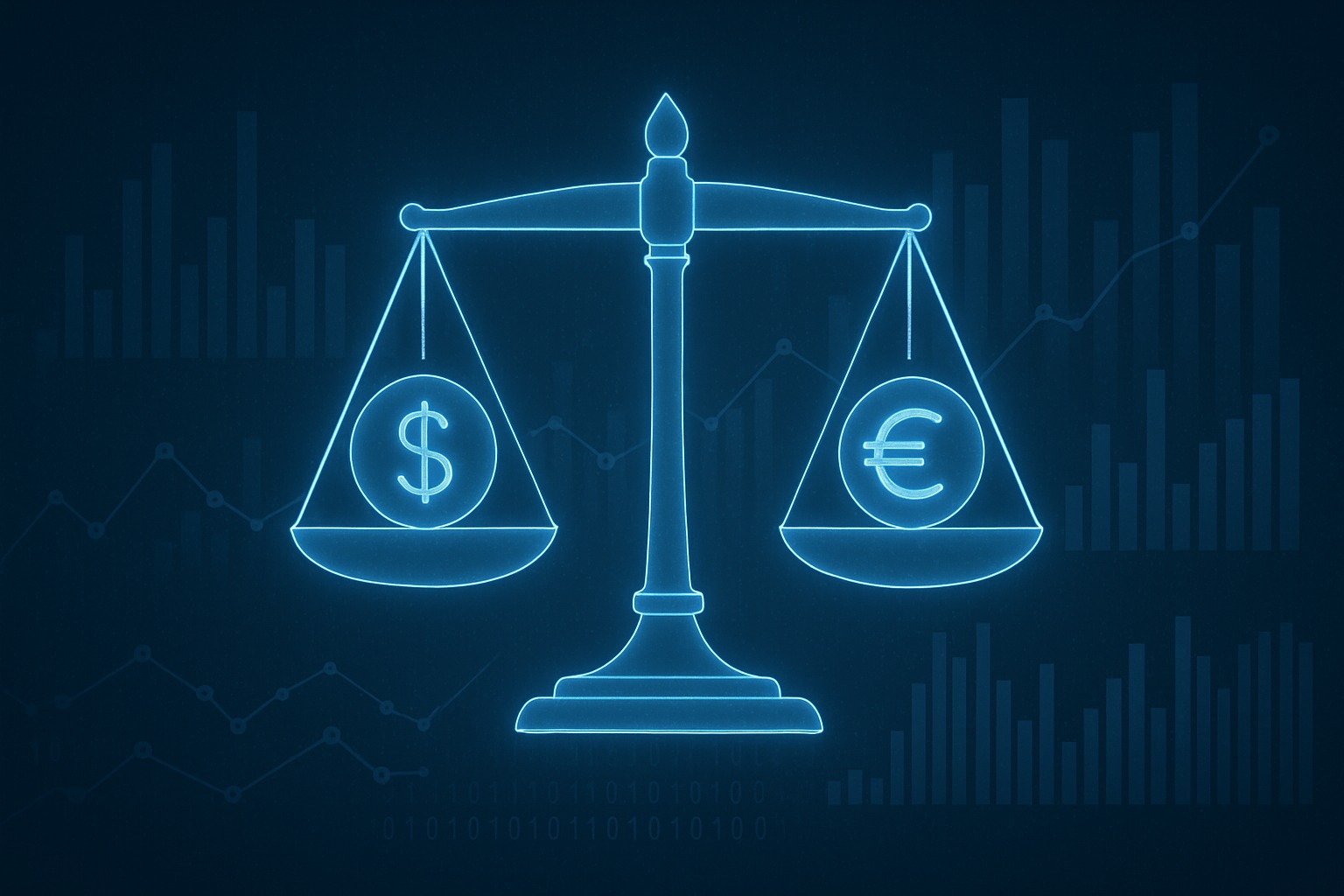
15. Januar 2025 – OpenAI plant Finanzierungsrunde über 40 Milliarden $
OpenAI plant eine neue Finanzierungsrunde über 40 Milliarden $, an der sich
SoftBank Medienberichten zufolge mit bis zu 25 Milliarden $ beteiligen könnte. Die Mittel sollen ein
Infrastrukturprojekt im Volumen von 500 Milliarden $ unterstützen, das unter dem Namen
„Stargate“ firmiert und eine neue Generation globaler KI-Rechenkapazitäten aufbauen soll. Ziel ist es, die
nötige Infrastruktur für deutlich größere KI-Modelle und Workloads zu schaffen. Sollte der Deal zustande
kommen, wäre er einer der größten Investitionsschritte im Bereich KI-Infrastruktur überhaupt.
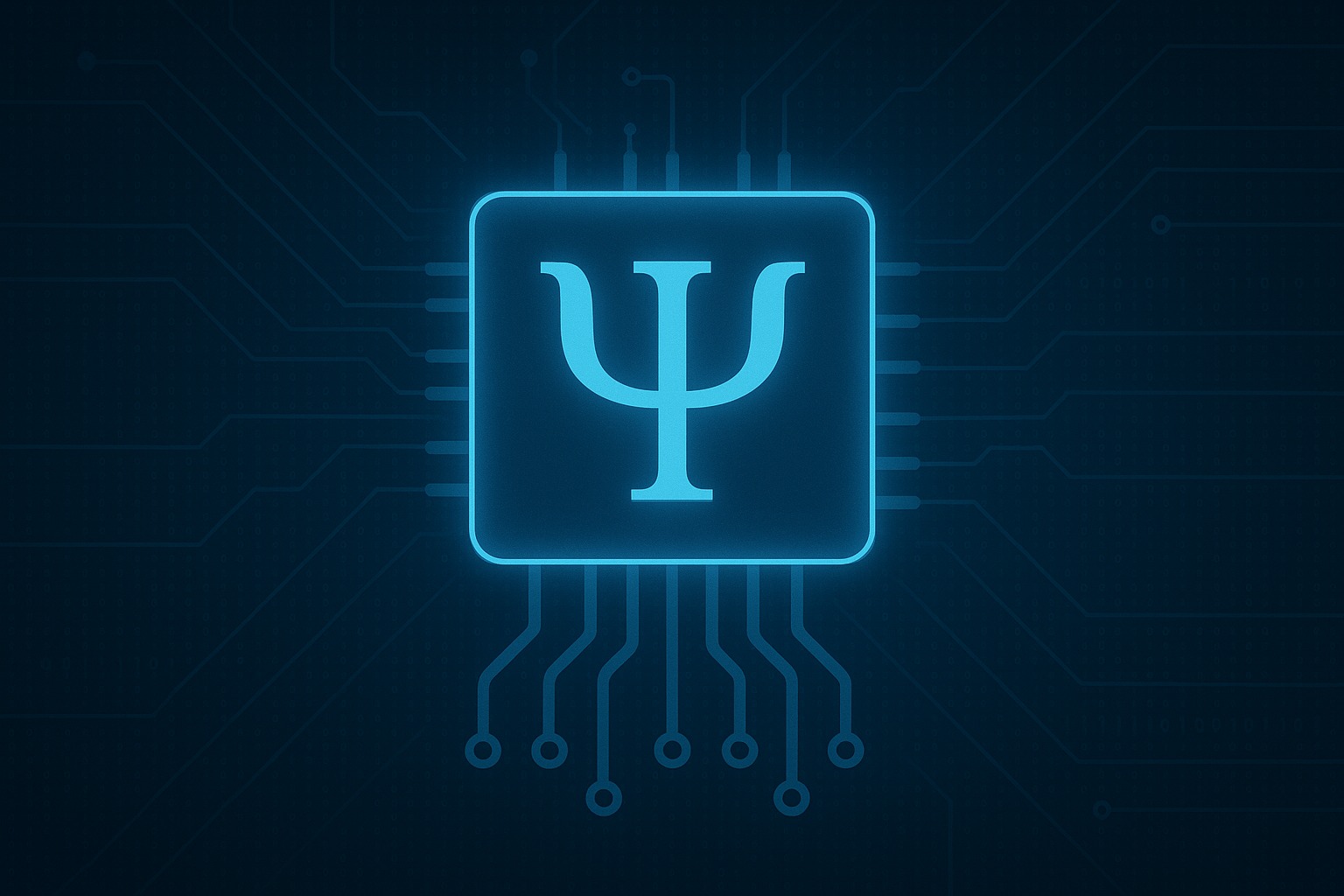
1. Januar 2025 – OpenAI veröffentlicht „o3-mini“-Reasoning-Modell
OpenAI hat „o3-mini“ vorgestellt, ein schlankes KI-Modell, das speziell auf
Transparenz und logikbasierte Schlussfolgerungen optimiert ist. Es verarbeitet Aufgaben rund
24 % schneller als vorherige Versionen und gibt sichtbare, schrittweise
Zwischenergebnisse aus. Das Modell steht kostenlosen ChatGPT-Nutzern mit Nutzungslimits zur Verfügung und kann
auch per API eingebunden werden. Die Veröffentlichung markiert einen weiteren Schritt hin zu transparenteren,
effizienteren Modellen für Endnutzer- und Unternehmensanwendungen.
Quellen:
OpenAI Blog,
TechCrunch

15. Dezember 2024 – Meta zu 251 Millionen € DSGVO-Strafe verurteilt
Die irische Datenschutzbehörde hat Meta mit einer Strafe von 251 Millionen € belegt.
Hintergrund ist ein länger zurückliegender Datenschutzverstoß bei Facebook aus dem Jahr 2018, bei dem
personenbezogene Daten von 29 Millionen Nutzerinnen und Nutzern – darunter Kontaktdaten und Standorte –
offengelegt wurden. Meta wurde vorgeworfen, unzureichende Schutzmaßnahmen implementiert und den Vorfall nicht
transparent genug gemeldet zu haben. Die Entscheidung unterstreicht den strengen Vollzug der
Datenschutzregeln in der EU im Rahmen der DSGVO.
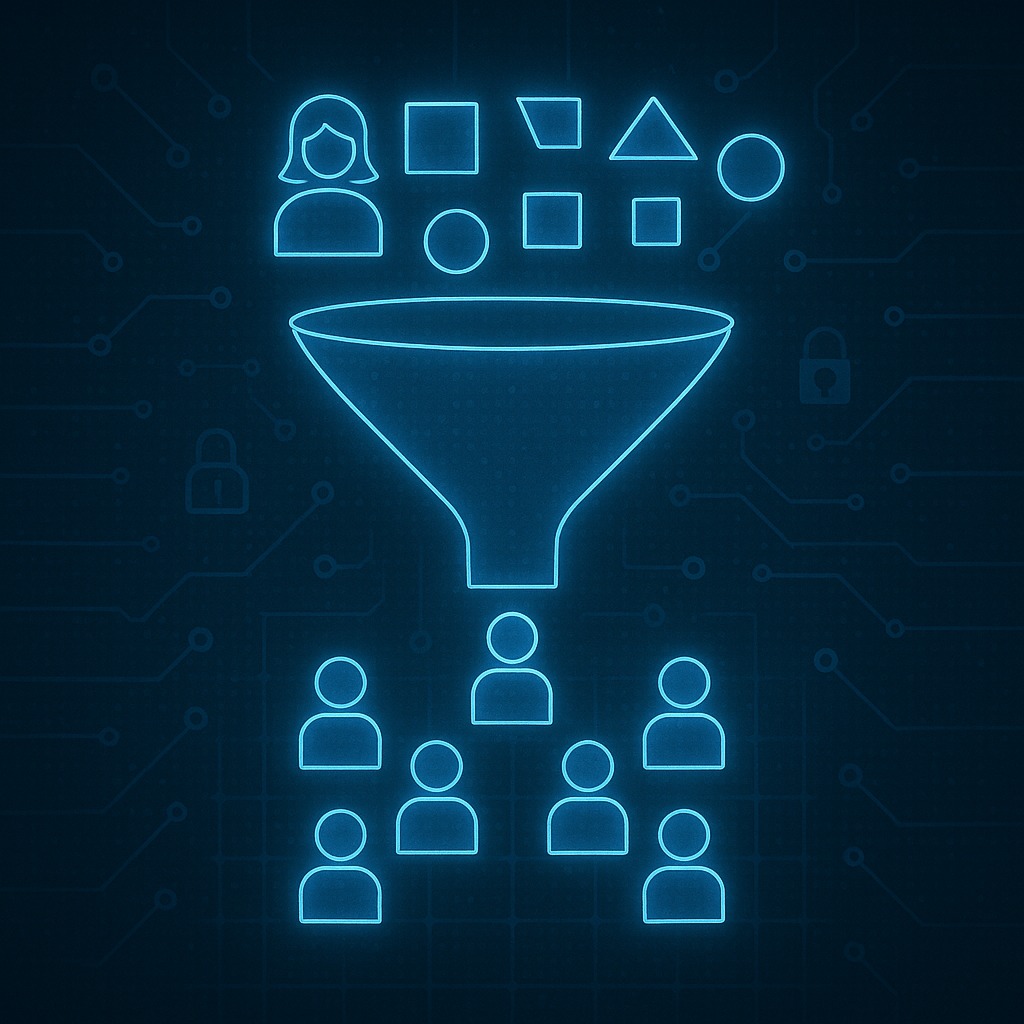
1. Dezember 2024 – MIT entwickelt Trainingsmethode zur Verringerung von KI-Bias
Forschende am MIT haben eine neue Methode zur Reduzierung von Verzerrungen (Bias) in
Machine-Learning-Modellen vorgestellt. Der Ansatz reduziert gezielt das Gewicht einzelner
Trainingsdatenpunkte, die die Leistung für unterrepräsentierte Gruppen verschlechtern, ohne die
Gesamtgenauigkeit
des Modells zu beeinträchtigen. Die Methode bietet eine gezielte, skalierbare Alternative zu klassischem
„Rebalancing“ von Datensätzen und zeigt vielversprechende Ergebnisse für mehr Fairness in realen
KI-Anwendungen.
Quellen:
MIT News,
Nature Machine Intelligence
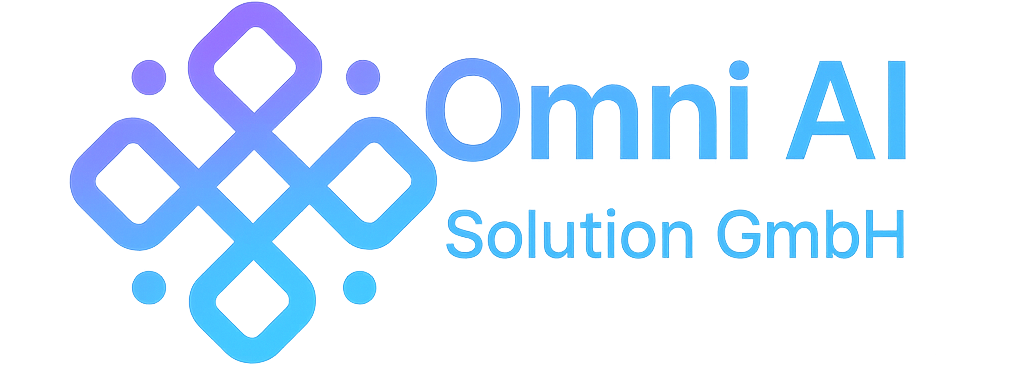
 Deutsch
Deutsch
 English
English